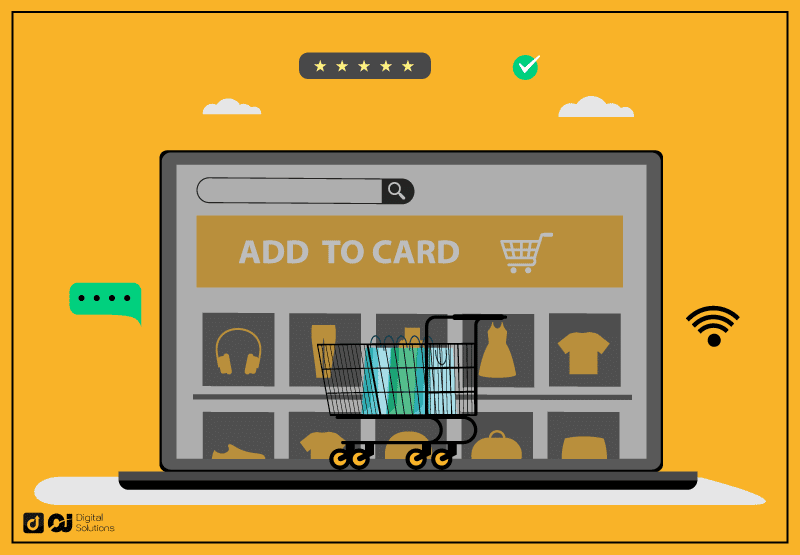
Amazon lending is a form of financing that's available to qualified sellers. These loans can be a great way for you to raise additional cash to help grow your business.
Be sure to weigh the pros and con's of each option before you apply. You could be held responsible for paying hefty fees if you are not able to grow.
Eligibility
Amazon Lending Program allows you to apply for loans if you have an Amazon seller profile. To apply, you will need an invitation.
It is much simpler than other small business loans and requires less paperwork. Since the loan is based on your sales performance, Amazon doesn't require you to provide extensive documentation like financial profiles and tax returns.
With repayment terms up to 12 months, you can borrow between $1,000 and $750,000. Each month, the loan amount will be paid out of your seller account.
Amazon sellers needing financing to grow their businesses will find this a great option. But it's important to weigh the pros and cons before making any decisions. It's also a good idea to compare the cost and monthly payments with other lenders before signing up.
Benefits

Amazon Lending is an invitation only program. It pre-selects sellers based upon their sales volume to provide them with a loan amount. Sellers then have the ability to accept or decline an offer via Amazon Seller Central.
The application process is fast and easy. The only thing sellers have to do is check the boxes that indicate their eligibility based upon their sales and performance as well as some other metrics.
One of the biggest benefits of Amazon Lending is that it's free of many of the fees associated with traditional financing. These include origination and application fees, closing costs, and prepayment penalty fee fees.
Amazon Lending is not a good fit for every small company. Amazon Lending offers attractive rates and fees but there might be other funding options that are more suitable for your business.
For sellers who have strong sales, it is a smart idea to take out an Amazon loan. But be sure to monitor your monthly progress and verify that the automatic deductions on your account fully repay the loan amount each month.
Requirements
Amazon loans are a form of inventory financing that allow sellers to borrow money for products they plan to sell on the Amazon marketplace. This could be a good solution for people who need to keep their inventory in stock so that it can be sold on Amazon.
It is important to remember that Amazon will take a fixed monthly amount out of your Seller Account. This will reduce sales, which can make it more difficult to repay the loan on time.

You will also be more dependent on Amazon because the funds you get can only be used to purchase products on Amazon. This can be a problem for those who plan to expand their business beyond Amazon.
Review
Amazon Lending offers small business loans. The program pre-selects selected third parties sellers based a range of factors, including sales volume or history. Once a company's information is obtained, Amazon issues a loan offer up to a certain dollar amount. The seller is then invited to accept the offer.
The program is intended to improve Amazon sellers' cash flow, buy inventory, and pay marketing expenses. The funds cannot be used to pay rent or refinance a vehicle.
Like many loans, Amazon Lending has its own terms and conditions, which include fixed monthly repayments. These repayments automatically get deducted from Amazon Seller Account.
FAQ
Why is it better not to use credit card when shopping online?
Credit card companies offer a variety of benefits, including rewards programs, free shipping and cash back. You also have protection from fraud. They don't have fees, which is why they are better than debit cards.
Customers who are unable to pay the balance on time also have flexibility with credit cards. They also allow you to make purchases without worrying about how much money you have left in your account.
Should I be concerned about my privacy while shopping online?
It is vital for consumers to find out what information they are giving up when they use Amazon.com. Consumers should always ask themselves if they want to share personal information with companies like Amazon. You may need to restrict your shopping to sites that you are comfortable sharing your personal data if you don't want to share this information.
Can I order clothes online and have them returned?
Absolutely! Online shopping is now easier than ever. All major retailers offer free returns. Simply print off a label and drop it in the mail.
However, keep in mind that you'll only receive a refund after receiving the item. If you aren't satisfied with the product for any reason, you will need to return it.
Statistics
- An approximately 90% increase in price affords Hotel X the opportunity of extreme profits under severe circumstances. (dos.ny.gov)
- All items on AliExpress have an estimated delivery time on the product page, and it's usually anywhere from 20 to 60 days. (makeuseof.com)
- The vast majority only change a password to protect privacy a few times a year (27 percent) or, more likely, never (35 percent). (pcmag.com)
- The tax is automatically added once you click the checkout button, so factor in an additional 20% when looking at the product page. (makeuseof.com)
External Links
How To
What are safe shopping techniques online?
Secure online shopping is something that everyone who shops online should know. It is also important to know how to shop on different websites without being scammed.
If you are looking for the best ways to buy items online, read on! This article will provide you with all the information and tips to make sure that you don't fall for scams.
-
Do your research. Before you decide to shop online, it's essential to do your homework first. Read reviews of the company you plan to purchase from, look for customer feedback, and get recommendations from friends and family.
-
Look around. Compare prices between several sellers if you are unsure about the reputation of a particular store. Use price comparison tools like Amazon Price Checker, Google Shopping, and Amazon Price Checker to help you compare prices. These tools can help you find the best prices from your favorite retailers.
-
Be aware of red flags. When browsing product pages, be aware of any signs indicating a scammer may be trying to trick you. For example, many fake sites contain misspelled words and grammatical errors. They often sell fake or incomplete products.
-
Pop-up windows are a danger. Pop-ups are sometimes used by websites to collect passwords or credit card numbers. When you see one of these pop-ups, click "escape" to close it immediately or choose another browser window.
-
Ask yourself questions. When you visit a website, think about the following questions: Does this website seem trustworthy? Is it offering something I need? Do I have the ability to trust the people who run the site?
-
Don't divulge any personal information. If you initiated the transaction, don't give out financial information, such as your Social Security Number, bank account number, and credit card details, over the phone or by email.
-
Do not click on links in emails. It is easy to click on an email link and land on a phishing website that appears exactly like the real thing. To avoid this type of fraud, only open emails from trusted sources (such banks)
-
Use strong passwords. Strong passwords must include numbers, symbols, and letters. It is important to keep your password confidential.
-
Be cautious when downloading files. Always download files from their source, not from email attachments. Never open attachments sent by unknown senders. If you are sent an attachment asking you to install software, do not open it.
-
Report suspicious activity. You should immediately notify your local police if you suspect your identity may have been stolen. You can also file a Federal Trade Commission complaint.
-
Protect your device. Make sure you have anti-malware protection installed on your computer. It could help stop hackers from accessing your private info.
-
Senior scammers are to be avoided. Seniors are more susceptible to scammers because they are less likely than others to be able to spot fake messages and websites.